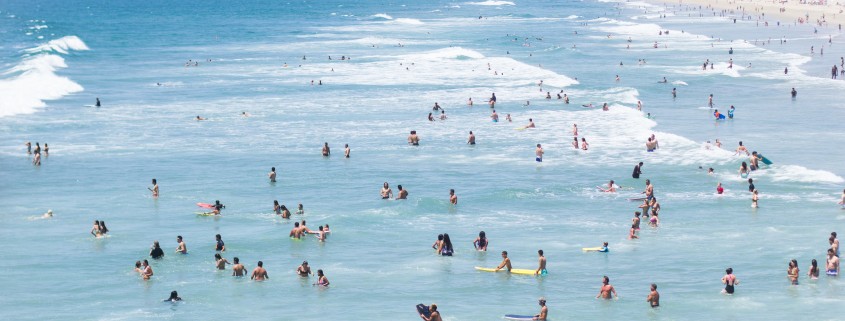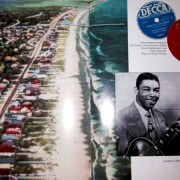Boulevard of Greedy Dreams
Child labor laws did not apply in my hometown. The young, and very young, turned out to hustle the summer crowd—just as in the country, all the kids labored on the farm—only at the beach the cash crop was fruit-like humans that magically sprouted from automobiles, ripe for the plucking. The tourists arrived fat where it mattered, in the hip pocket. We natives learned the nutritional value of cash as soon as our lips departed the maternal breast. We quit the nipple in favor of the fruit-like, red-of-neck pilgrim indigenous to the Bible Belt. God bless him and his wife, and all the little fruits of their loins.
I had my first summer job when I was nine years old, a serious job too, you know, not some neighborhood lemonade stand. I was entrusted with a cash register full of money, expected to make change for dollar bills, fives, tens, and even twenties. The bigger the money, the more intimidating the responsibility. It seemed to me that I was always in need of a trip to the bathroom.
I was too small for the elevation of the cash. Two RC Cola bottle crates were furnished me. I perched up there waiting anxiously for customers. These were the pilgrims aforementioned, red of neck, mostly kindly country people, only rude when drunk, or violent when cuckolded.
They amalgamated to form a cyclone of discretionary spending, a summer-long downpour of pennies, nickels, dimes, and all manner of paper money mixed in with discarded hamburger wrappers, soggy hot dog sleeves and empty milk shake cups. A regular, annual deluge, like the Monsoon rains.
We natives scrambled to prepare, and then turned to in season. All hands-on-deck with sticky fingers, palms up-turned to the generous sky.
It would rain money for only a hundred days, and then the pennies from heaven would dry up. So even the infantile, the impaired, halt, and lame were drafted as might be necessary to snag wayward droplets of legal tender.
All the kids had summer jobs. Everybody worked at some form of hustle designed to separate the tourists from nickels and dimes, a gradual harvest. The customer was not to be comprehensively robbed, but given equal value in good times, a fast ride, a sweet candy apple for a hard earned buck. And a heartfelt, “Come back to see us. . .”
The whole town adhered to this righteous principal. It amounted to a religion as well as an inside joke. For no one in the business of selling good times places as a great value on the goodness as the customer, who has sweated in the field, deprived himself, perhaps others too, of necessities and even proper nutrition, to afford the thrill of a fast ride. Myrtle Beach is, was, a carnival town. The bright lights and colored neon made promises that had to be kept, or the Monsoon rain of money would not come as plentifully next year. And that was a no-no. Every year was supposed to be better than the last, and never was, according to the bosses. Nobody ever made enough money, of course. The rain of silver only lasted for a hundred days. How could that ever fill the great lake of greed?









